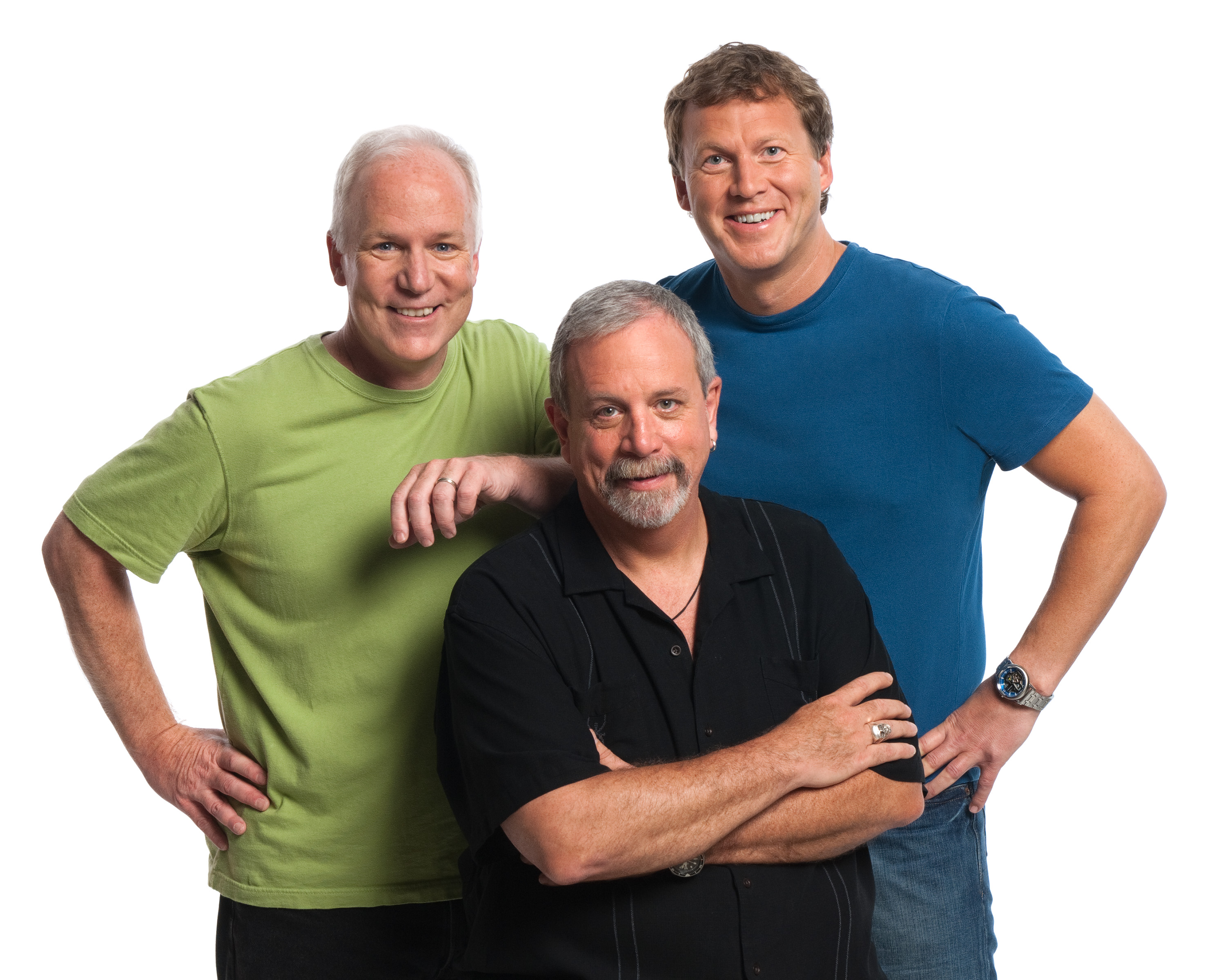Last week, there was a RiffTrax live event all across the country. If you’re not familiar with RiffTrax, it’s what some of the Mystery Science Theater 3000 crew do now. If you’re not familiar with MST3K, well, you’re in for a (possibly life-changing) treat.
In all of its iterations – MST3K, the Film Crew, Cinematic Titanic, RiffTrax – the basic premise is the same: comedians watch movies and make fun of them. It’s a premise so simple, yet so relentlessly compelling, that it’s no wonder the eight main performers from MST3K are all still involved in the movie-riffing business, nearly 24 years after the show first premiered.
As well as releasing DVDs, video-on-demand downloads, and downloadable audio commentaries, both Cinematic Titanic and RiffTrax regularly perform live shows. In the case of last week’s event, the RiffTrax crew mocked MST3K stalwart (and current #4 movie in the IMDb Bottom 100) Manos: The Hands of Fate with all new jokes from a theater in Nashville, broadcasting the event to movie theaters nationally. It was a terrific good time – and if you missed it, never fear: it’s happening again in October, this time with a movie even dearer to my heart, the gloriously incompetent Birdemic: Shock and Terror– but, as devoted a fan as I am of these guys and their hilarious work, I am troubled by one thing:
They are almost all white dudes.
 |
| RiffTrax: funny white men. |
Cinematic Titanic is composed of four white men and one white woman. RiffTrax comprises three white men and occasionally guest stars such as “Weird Al” Yankovic, Joel McHale, or Neil Patrick Harris.
Why is the movie-riffing business so white? Why is it so male? (Why is it so straight and cis?)
Of course, MST3K got its start in the late eighties in the Midwest, so that might explain why it was very white and mostly male. But it’s now 2012, and I live in the Bay Area. When I saw the RiffTrax live show at SF Sketchfest in January, the guest riffers were David Cross, Bruce McCulloch, Eugene Mirman, and Paul F. Tompkins. All very funny people whose work I enjoy enormously; all white men.
 |
| MST3K / Cinematic Titanic: mostly funny white men. |
The broader problem, of course, is that the mainstream comedy world is still profoundly white-male-centric. Women and people of color are still tokenized on The Daily Show. Popular sitcoms like Two and Half Men and The Big Bang Theory are squarely focused on the white male experience, while shows that attempt diversity get it appallinglywrong. Even my beloved Community is a show created by and centering on a white man.
And who are the comedians who get their own basic-cable TV shows? Stephen Colbert. Russell Brand. Louis C.K. Daniel Tosh. W. Kamau Bell (which gives me some hope; are you watching Totally Biased? You should be!). The people who don’t get their own TV shows are Maria Bamford, Kristen Wiig, Margaret Cho (well, she once had a show, but let’s not talk about that).
 |
| OH MY GOD GIVE HER A SHOW ALREADY |
Of course, the success of 30 Rock and Parks and Recreation has spawned a number of sitcoms with female protagonists, but there still seems to be an entrenched cultural opposition to most feministcomedy. We feminists tend to put the weight of impossible expectations on any comedy that looks to be even the slightest bit feminist – remember how much of the discourse around Bridesmaids last year was centered on the notion that this movie provided proof positive now-and-forever-amen that women could be funny? Or the phenomenal outpouring of commentary this year on Girls? – and, with every passing internet-comedy twitstorm, it becomes clearer that we need to keep having this immensely frustrating conversation, assuring the wider world that comedy can indeed be both feminist and funny. The self-styled defenders of free speech, who seem to think that critique is the same as censorship, excuse the ugliest and most offensive jokes as fair game. Our best way of combating that is to keep proving that you can fight for justice andbe funny at the same time.
And I think movie riffing could be a very good way of doing this. It’s become a bit of a truism that riffing is at its best when it comes from a place of some genuine affection for the material being mocked, when it’s “funny and clever and occasionally a little more generous … not just too mean-spirited and sour.” MST3K and its successors are great because they’re made by people who love movies. The jokes express a sincere wish for the movie under scrutiny to be good.
In the same way, feminist pop-culture commentary isn’t just about slaying all fun so that we can all be miserable subjects of the fiefdom of Nofunnington. It’s a sincere cry for things to be better, a way of telling humankind: You can be better than this.
MST3K improved my critical analysis of film and TV. Feminist commentary improved my critical analysis of the kyriarchy, the myriad -isms woven throughout our culture. If there was a more overtly feminist-slanted, equally hilarious movie-riffing team, you can bet that I would be their biggest fan.
